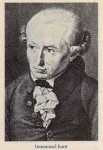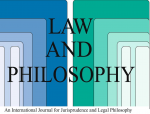Listing of talks and papers from 2013.
Kantian Personhood Principle
This paper formulates the labor theory of property and democratic theory in the context of the Kantian personhood principle to treat other persons always as ends in themselves and never simply as means.
Property and Contract in Economics: The Case for Economic Democracy
This book presents a modern version of the old Labor (or Natural Rights) Theory of Property and of an Inalienable Rights Theory that descends from the Reformation and Enlightenment. Together these theories re-solve the basic problem of distribution in the sense of giving a basis for the just appropriation of property and a basis for answering the question of who is to be the firm, e.g., the suppliers of share capital as in conventional capital, the government as in socialism, or the people who work in the firm as in the system of economic democracy (or labor-managed market economies).
Inalienable Rights: A Litmus Test for Liberal Theories of Justice
This paper published in the European journal, Law and Philosophy, examines the intellectual history of inalienable rights theory, and critically examines the work of liberal philosophers of justice, John Rawls and Robert Nozick, from that perspective.
Translatio versus Concessio: Retrieving the debate about contracts of alienation with an application to today’s employment contract
Liberal thought is based on the fundamental question of consent versus coercion. The autocracies and slavery systems of the past were based on coercion whereas today’s democracy in the political sphere and employment system in the economy are based on consent. This paper retrieves an almost forgotten contractarian tradition, dating from at least the Middle Ages, that based political autocracy and economic slavery on explicit or implicit voluntary contracts. Hence the democratic and antislavery movements had to hammer out arguments not simply in favor of consent and against coercion, but arguments based on the distinction between contracts to alienate (translatio) sovereignty versus contracts to only delegate (concessio) self-governance rights.
On Rawls and Nussbaum
This paper was delivered at a 2008 conference in Leuven on Martha Nussbaum’s book Frontiers of Justice. The paper was to be published in the conference proceedings, but somehow that never happened.
Foundations-of-Self-Management-1975
This old typescript was probably the first written and published version of the argument for worker self-management (as we called it in those days) based on democratic theory and the labor theory of property seen as the property application of the usual principle of imputing legal responsibility in accordance with de facto responsibility.
Employment Contract and Liberal Thought
This was the first of several papers that focused on the employment contract and inalienable rights, rather than on the labor theory of property.








